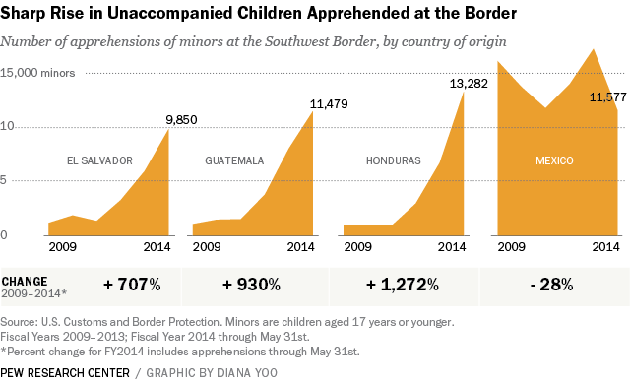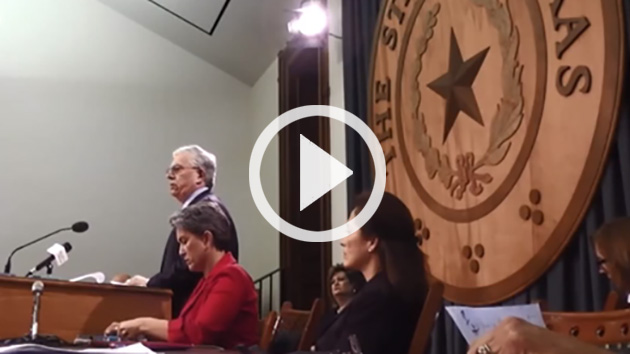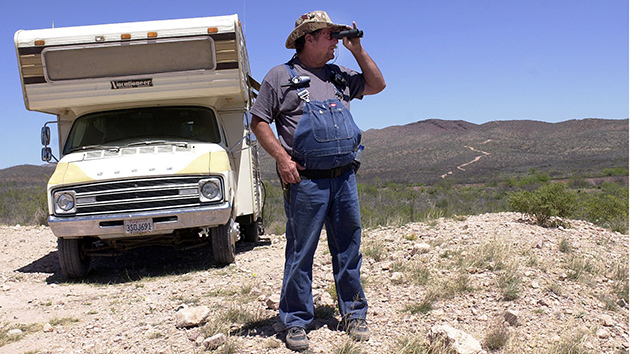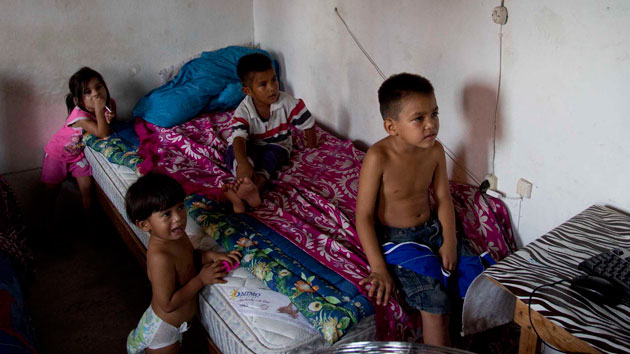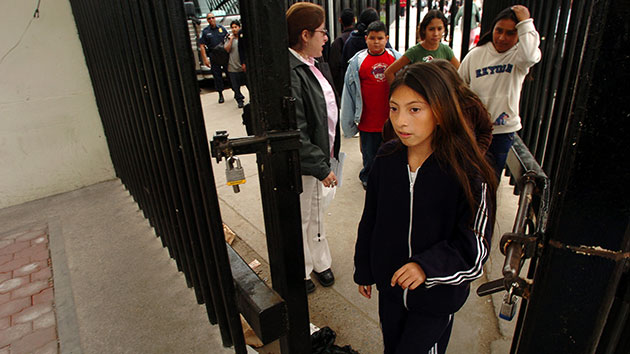
Eleven-year-old Ruby Estrellita Scott Mendoza walks through a deportation gate from San Diego to Tijuana in 2006.David Maung/AP
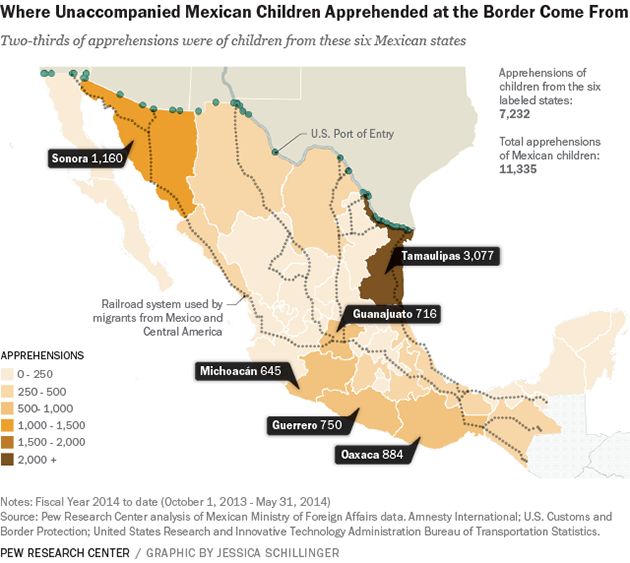
While the focus of the recent border crisis has been on unaccompanied child migrants from Central America, thousands of Mexican kids also have been apprehended trying to cross into the United States since last fall. According to a new analysis by the Pew Research Center, the vast majority had been caught several times before—and 15 percent of them reported having been previously apprehended six times or more.
The US Border Patrol made more than 11,300 apprehensions of unaccompanied Mexican child migrants from October 2013 to May 2014. Among the kids picked up, 76 percent said they’d been caught “multiple times before,” according to the Pew report, which is based on data provided by Mexico’s Ministry of Foreign Affairs. As the map above shows, 64 percent of Mexican minors crossing alone came from six states: Tamaulipas, Sonora, Oaxaca, Guerrero, Guanajuato, and Michoacán.
Currently, child migrants from Mexico (and Canada) can be deported shortly after apprehension, unlike kids from elsewhere, who are reunified with US-based family while their immigration proceedings are pending. As I wrote last month in a post about why the federal government shouldn’t change the law to more easily deport Central American kids:
When an unaccompanied Mexican child is apprehended by the Border Patrol, agents are supposed to screen him within 48 hours. Specifically, they are supposed to determine three things: (1) whether the child has been the victim of trafficking; (2) whether the child has a fear of returning to Mexico; and (3) whether the child is able to voluntarily make the decision to return home. If the screening reveals that the child hasn’t been trafficked, isn’t afraid to go back, and can make the decision by himself, then he can be sent back.
In practice, says the ACLU’s Sarah Mehta, “when they’re happening, the screenings are inconsistent, but often they’re not happening.” Some agents don’t speak Spanish; in other cases, Mehta says, kids have reported not being asked any questions at all, or being told by agents that they can’t get deportation relief for whatever they experienced at home or along the way to the United States.
Perhaps not surprisingly, a UN Refugee Commission report claimed that more than 95 percent of Mexican children caught at the border by themselves in fiscal 2013 were returned to Mexico. If Mexican kids do have legitimate asylum claims, they’re likely not being heard, advocates claim. And when these kids do get sent back, many try to cross again.
Here’s another Pew chart, this one showing the numbers of unaccompanied child apprehensions by country of origin since 2009:
